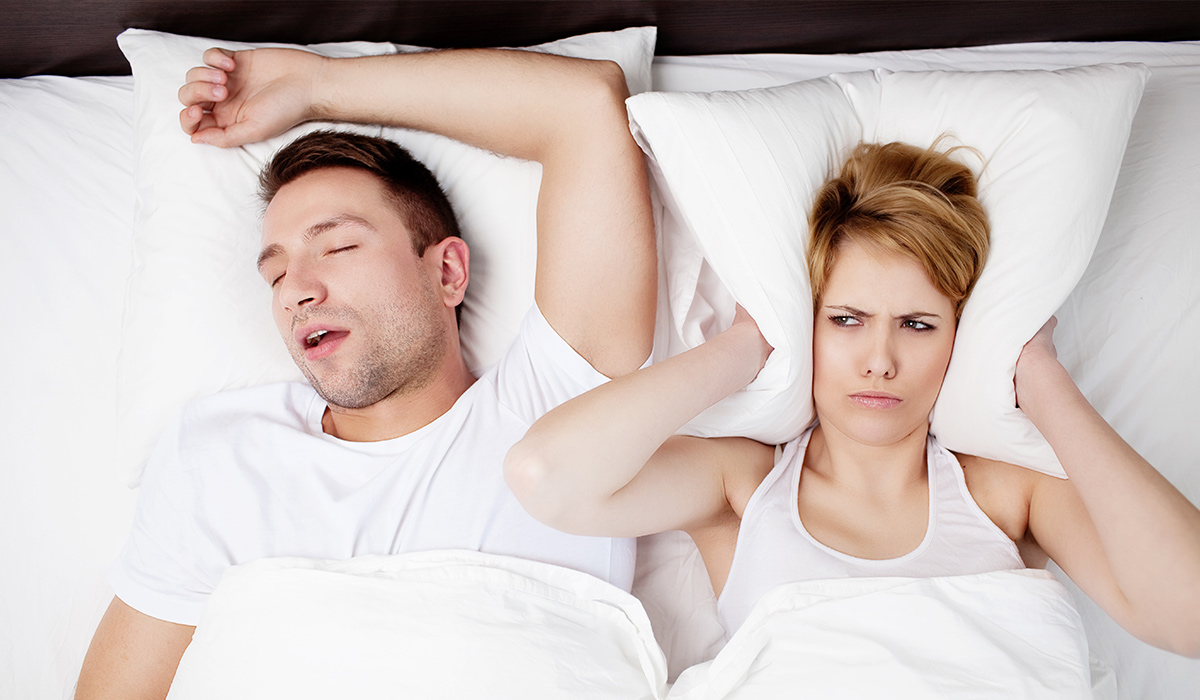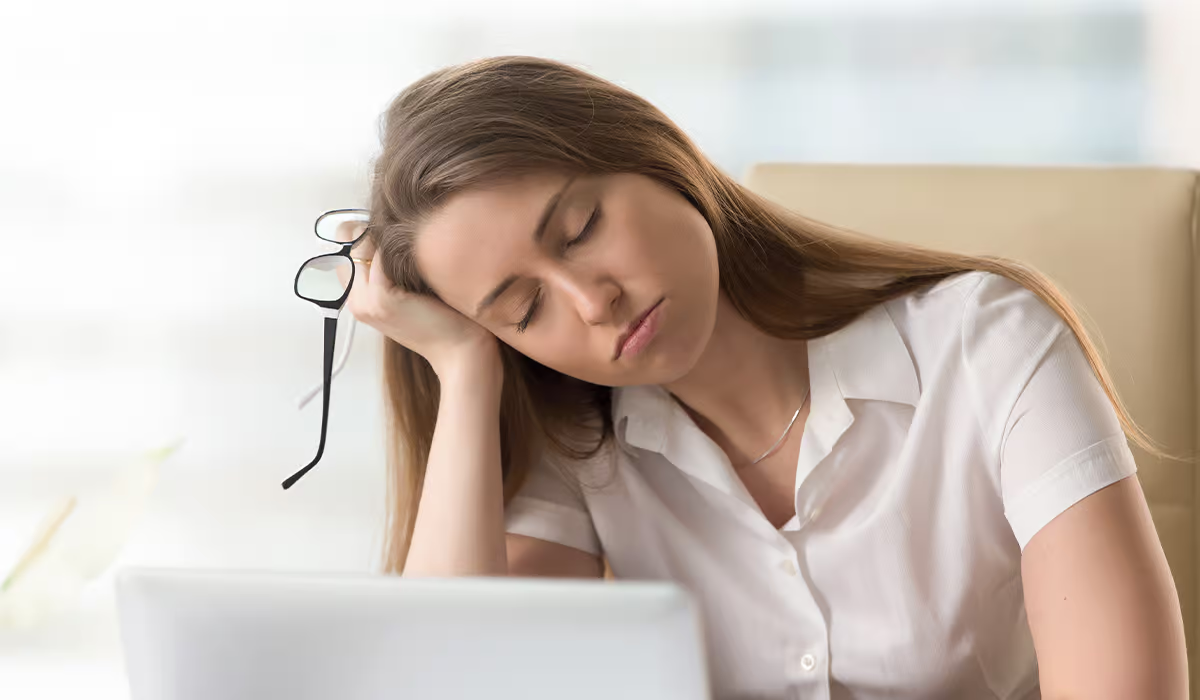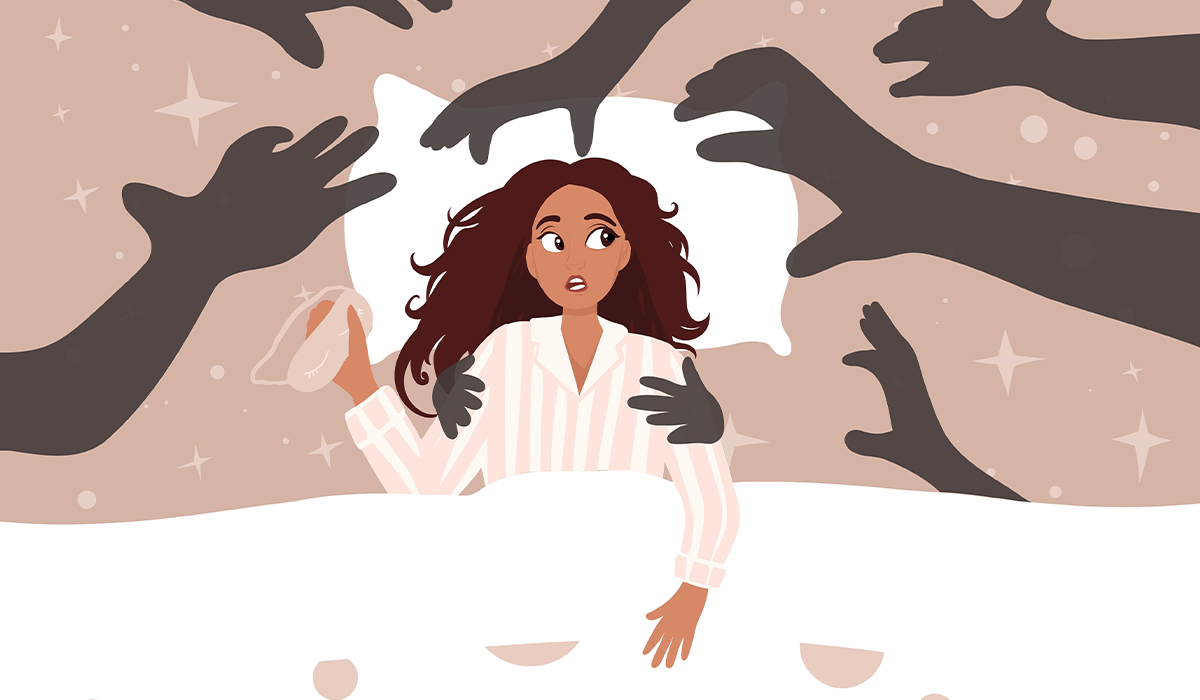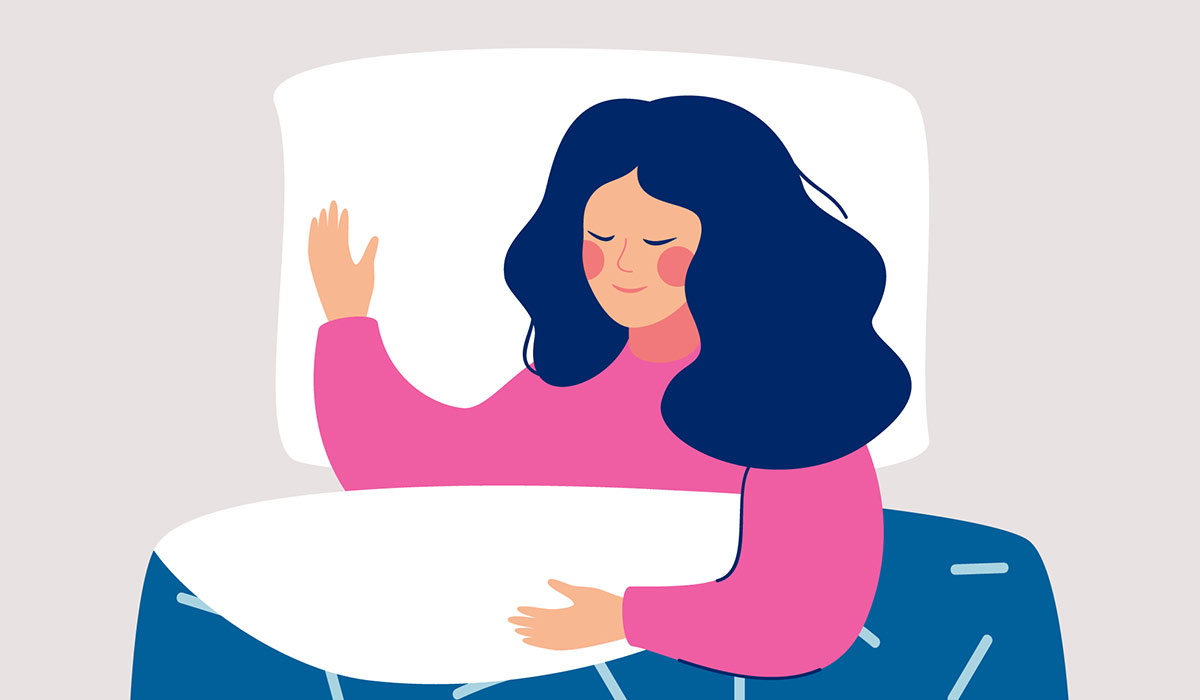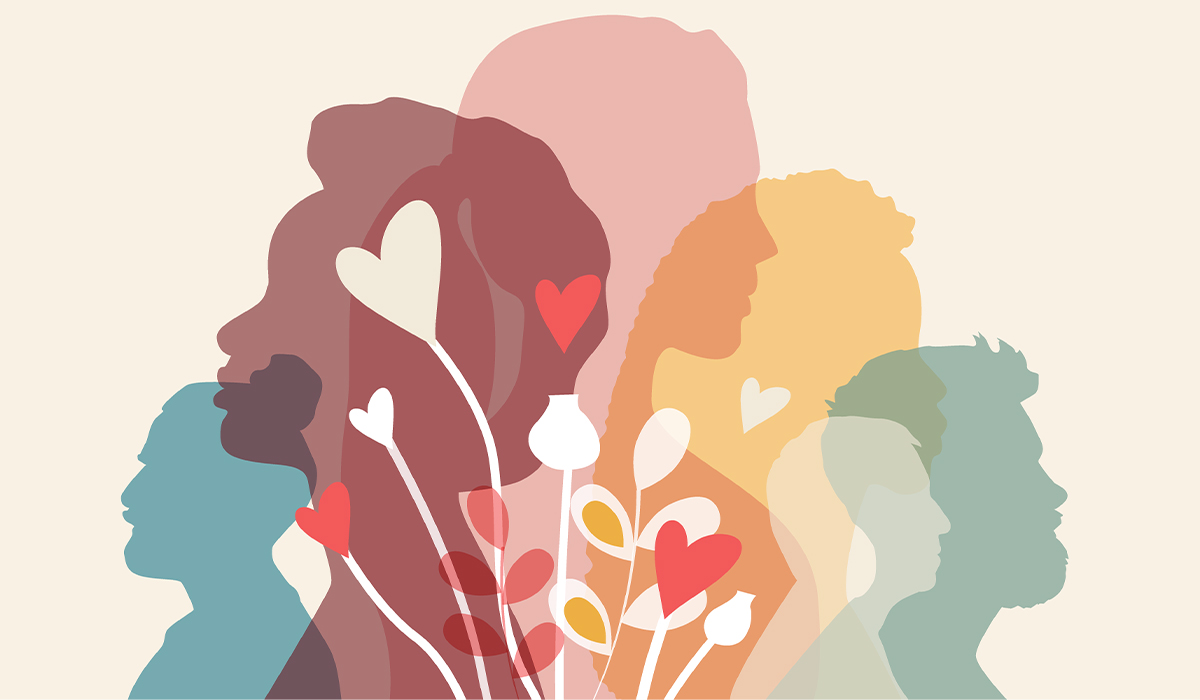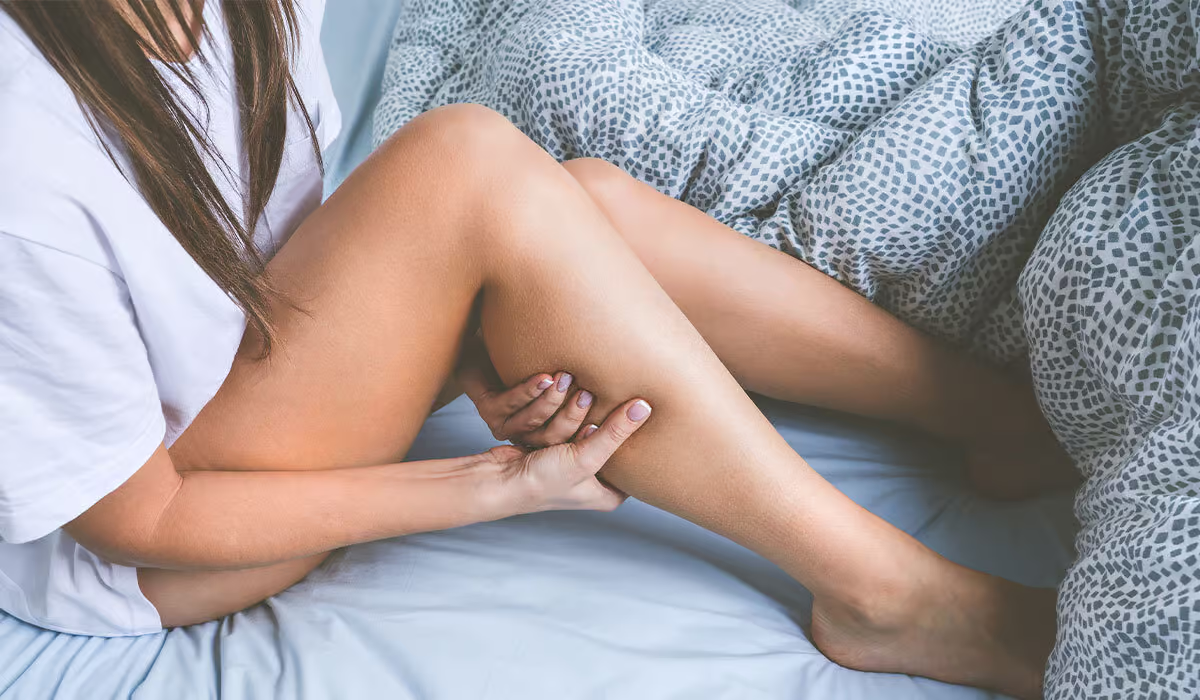In the past, the insomnia phenomenon was associated mainly with the elderly; nowadays, sleep problems are observed in younger and younger people. Currently, this type of ailment is no longer treated only as a symptom accompanying other conditions – but as a separate disease entity requiring comprehensive treatment in a specialist center dealing with sleep disorders.
Different Sleep Stages
Sleep, which lasts about eight hours, usually consists of four or five cycles. Each of them lasts from 80 to 100 minutes and is divided into five successive stages.
The first stage, intermediate between wakefulness and sleep, lasts only a few minutes. The production of cortisol (the stress hormone) decreases, and the concentration of melatonin (a hormone that facilitates sleep) increases in the blood. If nothing disturbs us during this time, we fall asleep.
The second stage is shallow sleep. The muscles are relaxed, the eyes do not move, and the breathing slows down and becomes even – temperature and pressure drop.
The third stage – is called slow-wave sleep. The brain is still working at a slow speed, but consciousness is gradually shutting down. Mind and body regenerate.
The fourth stage – REM (rapid eye movements) is also called paradoxical sleep because although the body is asleep, the brain is working intensively. Dreams appear. Then we also consolidate what we learned the previous day. At the end of the night, the duration of dreams increases. The closer to dawn, the longer the REM phases last.
After the end of the REM phase, the body calms down. It’s about to start the next cycle again. Three full cycles, i.e., about six hours, are enough to regenerate our strength. Each subsequent hour is a pleasure for the body to rest. People who don’t progress through the stages, such as the first two, don’t rest and feel worse during the day.
The length of sleepis an individual matter. It depends on:
- genetic predispositions,
- age,
- seasons (we would sleep longer in winter),
- lifestyle,
- and even the type of work you do (less stressful allows you to sleep better and longer).
Sleep problems – when does insomnia become a disease?
Sleep problems can start as soon as we go to bed. Then several hours pass before we finally fall asleep.
At times, falling asleep is effortless, but during the night, we may struggle to go back to sleep after waking up. Similarly, there are instances when we awaken in the morning and find ourselves already awake, waiting for the alarm to go off.
All these problems are referred to by specialists as insomnia.
Of course, we all have sleepless nights from time to time. It’s no drama. However, if we have three or four “white” nights a week and this condition persists for at least three consecutive weeks, then it is chronic insomnia, which requires medical consultation and treatment.
Sleep problems – types of insomnia
Scientists who have been studying sleep disorders for years have been tempted to segregate “night problems”. They divided them into extrinsic and intrinsic.
Extrinsic insomnia
It is caused by factors related to sleep hygiene, including:
- uncomfortable bed,
- too high temperature in the bedroom,
- noise coming from the busy street,
- neon flickering outside the window.
Sometimes, to finally get a good night’s sleep, it is enough to start sleeping in a different room or arrange the bedroom differently, e.g., move the bed to the other side or hang thicker curtains in the windows.
It is also worth changing the evening rituals. For example, take a walk before bedtime, listen to relaxing music, and do not use electronics before sleeping.
Intrinsic insomnia
Unfortunately, its reasons lie within ourselves and are harder to overcome. These are primarily psycho-emotional disorders mainly neuroses or depression (even those periodic ones related to the change of seasons); but also diseases like:
- hyperthyroidism,
- rheumatic diseases,
- diabetes,
- chronic pain,
- cancers,
- sleep apnea.
Causes of insomnia
The general concept of sleep disordersis quite broad, although several main disorders can be distinguished, among which insomnia is the most common. In addition to insomnia, the following are also relatively often diagnosed:
- snoring and apnea;
- excessive sleepiness (e.g., due to illness);
- narcolepsy, i.e., uncontrollable attacks of drowsiness at unexpected times;
- nightmares and night terrors;
- somnambulism (sleepwalking);
- leg cramps at night.
Problems with falling asleep that occur unexpectedly may indicate the presence of some disease or be the result of the negative impact of certain factors. It is crucial to determine the root cause of your sleep issues. Go on a consultation with a healthcare professional, and get the appropriate assistance and care.
Insomnia can have various causes:
- external – influence of factors such as heat, bright light, noise, or change of time zone;
- somatic – occurrence of ailments that disturb sleep, e.g., the urge to urinate at night;
- psychotic – associated with depressive disorders and various types of fears, and delusions;
- neurogenic – including damage to the nervous system and its impaired functioning;
- psychogenic – powerful emotional state, stress, conflicts with other people;
- toxic and iatrogenic – insomnia may occur after drinking alcohol or certain medications; caffeine is also significant;
- primary – that is, difficult to capture.
In adults, insomnia is most often associated with mental disorders and depression. In second place are psychophysiological diseases, followed by the discontinuation of preparations having a central effect. Thus, the problem of insomnia can have various causes. One thing is unquestionable – insomnia effectively prevents everyday functioning during the day because the lack of an adequate dose of sleep makes us irritable and makes us feel worse.
The risk of insomniaoccurs primarily:
- in women after menopause,
- shift workers,
- in people diagnosed with depressive disorders in the past,
- in elderly people.
Insomnia – clinical symptoms
People with insomnia have difficulty not only getting to sleep but also staying asleep. Very often they wake up too early, and their sleep is of poor quality, making rest almost impossible. For insomnia to be considered abnormal, it must interfere with daily functioning and continue for a minimum of one month. The diagnostic criteria for insomnia are the frequency of symptomsand the duration and impact of insomnia on everyday life.
Chronic insomnia– that lasts longer than a month – usually has a psychological background (anxiety, depression). It may occur in somatic diseases, including hormonal disorders.
Sleep problems are rarely primary. On the other hand, accidental (several days) and short-term (up to four weeks) insomnia is most often a response to stress (e.g., problems at work, at school, or in a relationship) or a consequence of a lifestyle change.
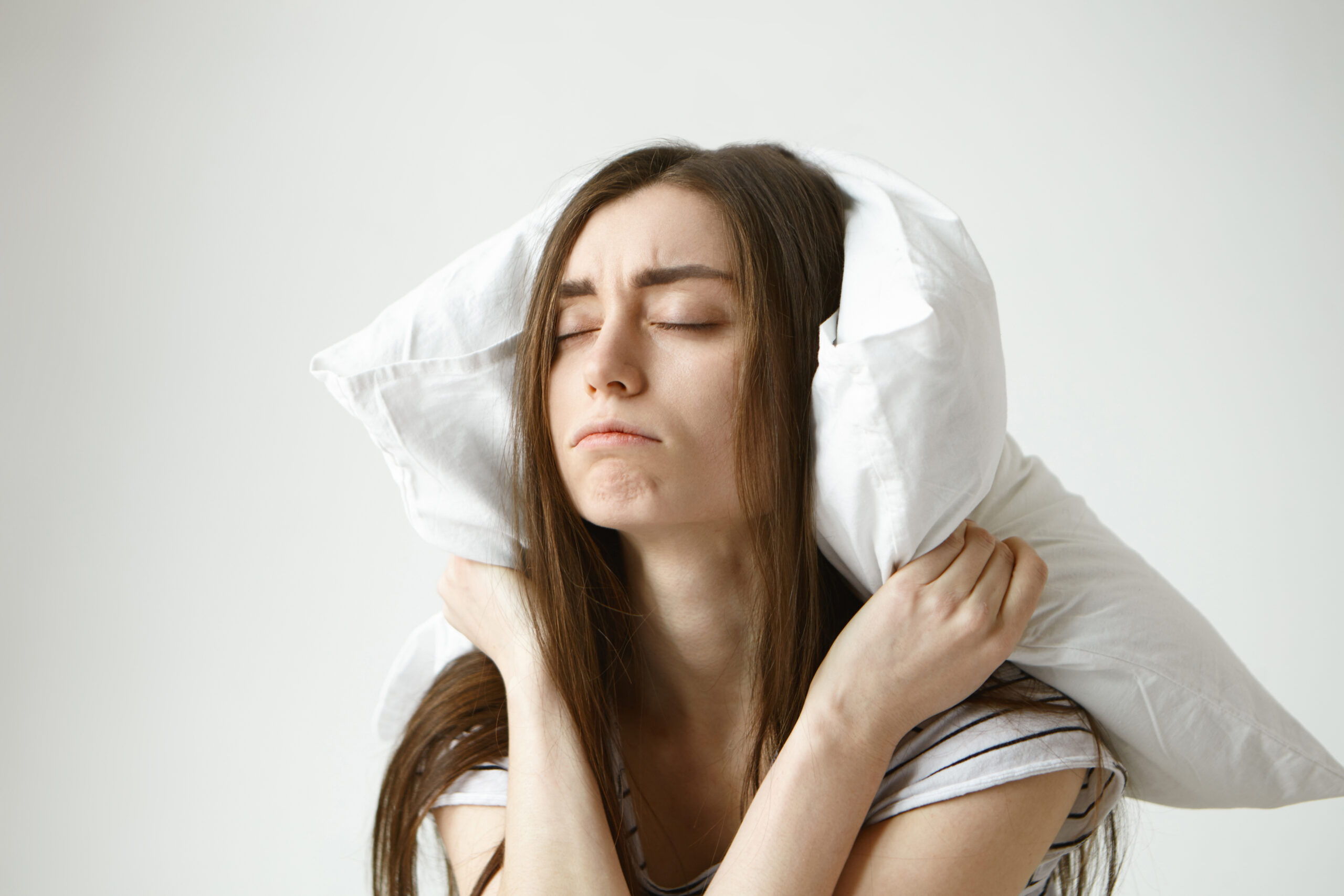
Insomnia – diagnosis
The diagnosis of insomniais mainly based on finding the cause of this state of affairs. For this, it is necessary to assess the general state of health, which is made by a doctor based on the collected medical history. During the patient’s visit, blood pressure is measured. In some cases, periodic examinations and ECG are recommended. In a situation where, after examining the patient, their somatic condition does not indicate the cause of insomnia, mental disorders are excluded in a psychiatric office. After excluding the psychological factor, the doctor pays attention to the patient’s lifestyle and suggests starting a sleep diary. Only after obtaining all the most significant information – it is possible to implement appropriate treatment.
For people who have been unable to determine the cause of insomnia, it is recommended to consult a specialist sleep disorder clinic. During the visit, a group of specialists looks at slightly rarer causes, such as restless legs syndrome.
How to treat insomnia?
Treatment with the use of cognitive behavioral therapyis the basic method of treatment of primary insomnia and secondary chronic insomnia, which coexists with other ailments.
During treatment, it is also worth mentioning the factors that perpetuate the problem of sleep disorders:
- lack of physical activity,
- taking naps during the day,
- spending a long time in bed,
- taking sleeping pills too often,
- drinking alcohol before bedtime,
- forceful sleep,
- the constant fear of what the next night will look like,
- worrying too much about the quality of your sleep.
Eliminating the above factors is necessary for insomnia to subside.
In cognitive-behavioral therapy, the most important are:
- Proper sleep hygiene – to be maintained, you should: refrain from consuming caffeine 6 hours before the planned bedtime; avoid bright light in the evening, e.g., from a computer screen; avoid smoking cigarettes and drinking alcohol in the evening; eat light meals before bedtime and limit fluid intake; avoid excessive physical exertion three hours before bedtime; follow a consistent bedtime and wake-up routine.
- Reducing sleep time.
- Stimulus control by – going to bed only when we feel very sleepy; using the bed only for sleeping and having sex (avoid reading or watching TV in bed); waking up at a fixed time in the morning, regardless of how late we went to bed; avoiding short naps during the day. These recommendations are intended to help you re-associate (associate) your bed with sleep and sleepiness.
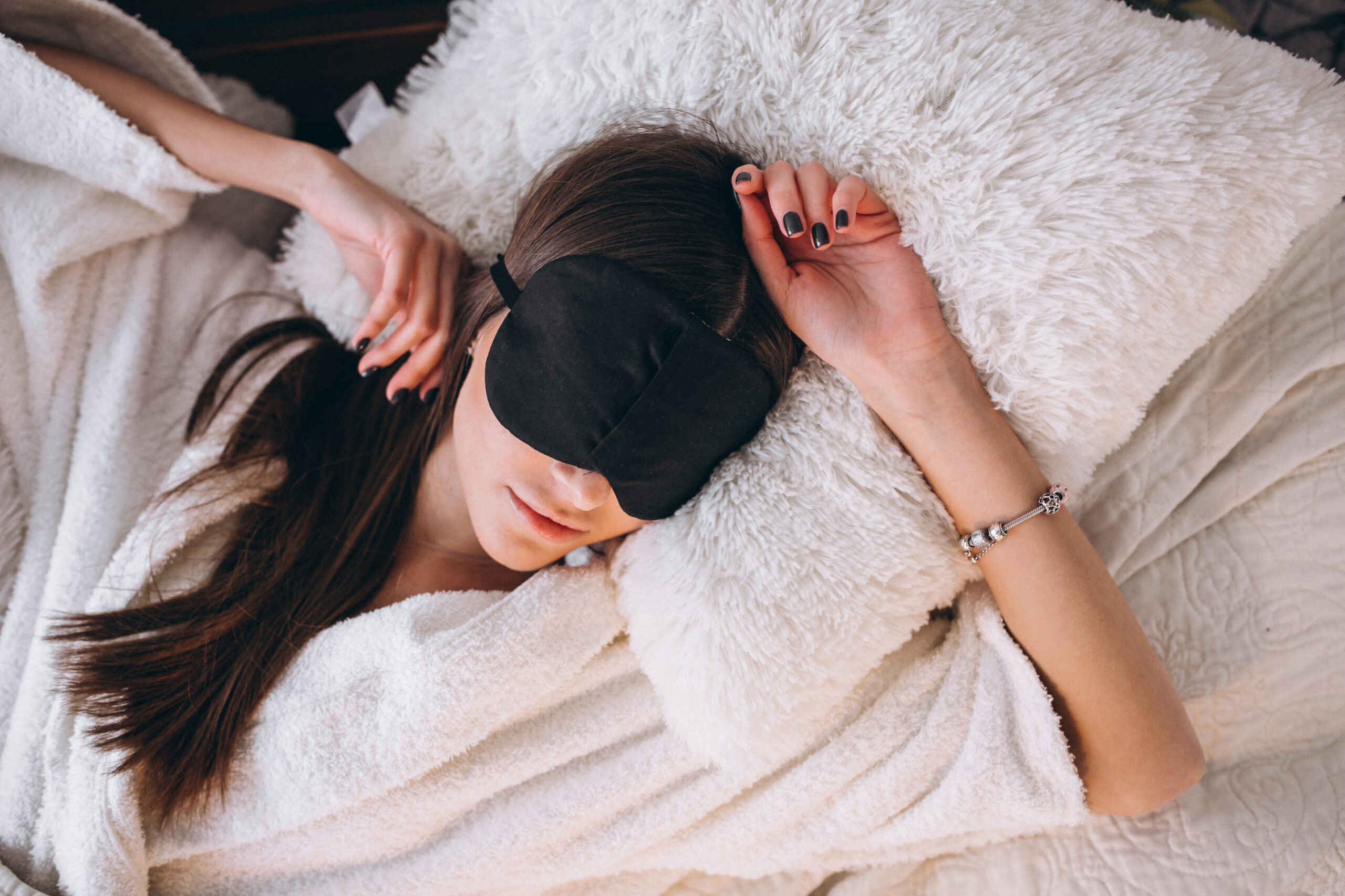
Pharmacological treatmentincludes mainly sleeping pills and sedatives, antidepressants, and antipsychotics. In addition, it is recommended to use herbal agentsavailable in the pharmacy without a prescription, e.g., lemon balm or valerian.
Intermittent use of sleeping pills means that a person does not get used to their effects, thanks to which they still have a positive effect on sleep. Thus, the risk of addiction is reduced.
We can use antihistamines, antidepressants, and antipsychotics for extended periods. It is because they are non-addictive. Specifically, antidepressants are commonly used to treat chronic insomnia, but it is recommended to take them in smaller doses and several hours before bedtime.
Antipsychotics taken in low doses help treat insomnia. Especially in patients with addictions and mental disorders. Taking these drugs is considered later because they cause several side effects, such as weight gain, tremors, stiffness, and lowering of blood pressure.
Preparations available in a pharmacy without a prescription (e.g., herbal medicines) are treated as a substitute for sleeping pills in a situation where insomnia is the result of stress and does not last for a long period.
How can insomnia be prevented?
Insomnia can be preventedby:
- increasing physical and cognitive activity;
- eliminating mental tensions and avoiding conflicts;
- going to bed regularly to create a natural reflex and biological rhythm;
- avoiding short naps during the day;
- avoiding stressful situations and stimuli in the hours preceding sleep, e.g., controversial heated discussions, watching movies that cause stress or have an exciting effect;
- avoiding alcohol, coffee, and strong tea before bedtime;
- relieving tension and stress with sedatives or taking sleeping pills – however, they should be used sporadically and not too late (no later than between 20:00 and 21:00), which will ensure the expected sleep during the natural nighttime and the effect of the drug will wear off in the morning.
How to sleep better?
Our circadian rhythm determines the sleep-wake cycle – which makes it much easier to fall asleep. Maintaining a consistent sleep schedule is beneficial for keeping your physical well-being. It’s significant to establish a consistent sleep scheduleby going to bed and waking up at the same time every day. You should also not allow yourself to sleep in on the weekend or take short naps during the day. It is also significant to allocate enough time for evening relaxation.
Take care of proper hydration. Drinking water is a significant element for the correct functioning of our body. Proper hydration not only improves the appearance of our skin but also supports the work of the heart and brain. Dehydration is also directly related to the stress we feel.
Evening problems with falling asleep may therefore be caused by the presence of drinking coffeetoo late. To enhance our sleep quality, it’s advisable to restrict our caffeine intake during the afternoon and evening.
Although alcoholcan make you tired, its presence in the body adversely affects sleep quality. Alcohol can lower blood sugar levels, causing you to wake up or fall asleep in the middle of the night. In addition, it also affects our well-being in the morning and causes fatigue during everyday duties.
A healthy dietaffects the functioning of the entire body. A wholesome meal nourishes the body, helps stabilize blood sugar levels, and helps you fall asleep. However, it should be remembered that the last meal should be easily digestible and eaten at least two hours before bedtime. In addition, it is worth introducing protein-rich products to your diet, which are a good source of tryptophan, a compound that supports melatonin secretion.
A bit of planning will keep our minds occupied and prevent the “I forgot something” feeling in the evening. Preparing a to-do list for the next day will also allow us to reduce the stress of not having enough time in the morning, which can translate into a positive attitude accompanying us for the rest of the day.
Doing intense exercisebefore bedtime that increases our energy and pumps our blood may not be a good choice. On the other hand, stretching or light, relaxing yoga can activate the parasympathetic nervous system, which is responsible for resting the body. This type of evening routine can positively affect the quality of our sleep, help to relax the body, and thus facilitate falling asleep.

Time for yourself does not always have to be associated with physical activity. A moment of silence for us can be writing down a few pages of the journal, listing the things for which we are grateful, or meditating. Reflecting on the past day and being consciously grateful for what we have can improve our mood and make us able to rest.
Physical hygiene is also related to sleep hygiene. Brushing your teeth and face or showering right before bedtime can soothe, calm, and make you feel refreshed and ready for sleep.
Sources
- How Much Sleep Is Enough?. NIH. https://www.nhlbi.nih.gov/health/sleep/how-much-sleep.
- Sleep Phases and Stages. NIH. https://www.nhlbi.nih.gov/health/sleep/stages-of-sleep.
- Sleep Disorders: In Depth. NIH. https://www.nccih.nih.gov/health/sleep-disorders-in-depth.
- What Is Insomnia?. NIH. https://www.nhlbi.nih.gov/health/insomnia.
- Insomnia: Definition, Prevalence, Etiology, and Consequences. NIH. https://www.ncbi.nlm.nih.gov/pmc/articles/PMC1978319/.
- Diagnosis and treatment of sleep disorders: a brief review for clinicians. NIH. https://www.ncbi.nlm.nih.gov/pmc/articles/PMC3181779/.
- Sleep Disorder. NIH. https://www.ncbi.nlm.nih.gov/books/NBK560720/.
- Insomnia causes, consequences, and therapeutics: an overview. NIH. https://pubmed.ncbi.nlm.nih.gov/14661186/.
- Causes and Risk Factors. NIH. https://www.nhlbi.nih.gov/health/insomnia/causes.
- Symptoms. NIH. https://www.nhlbi.nih.gov/health/insomnia/symptoms.
- Chronic Insomnia. NIH. https://www.ncbi.nlm.nih.gov/books/NBK526136/.
- Diagnosis and treatment of chronic insomnia. NIH. https://www.ncbi.nlm.nih.gov/pmc/articles/PMC2924526/.
- Cognitive-Behavioral Therapy for Insomnia: An Effective and Underutilized Treatment for Insomnia. NIH. https://www.ncbi.nlm.nih.gov/pmc/articles/PMC6796223/.
- Pharmacological Treatment of Insomnia. NIH. https://www.ncbi.nlm.nih.gov/pmc/articles/PMC4634348/.
- Treatment. NIH. https://www.nhlbi.nih.gov/health/insomnia/treatment.
- Behavioral Strategies, Including Exercise, for Addressing Insomnia. NIH. https://www.ncbi.nlm.nih.gov/pmc/articles/PMC6715137/#S4title
- Short sleep duration is associated with inadequate hydration: cross-cultural evidence from US and Chinese adults. NIH. https://pubmed.ncbi.nlm.nih.gov/30395316/.
- Effects of resistance exercise training and stretching on chronic insomnia. NIH. https://pubmed.ncbi.nlm.nih.gov/30328967/.
- Insomnia: Causes, Symptoms, and Treatment
- What is Insomnia?
- Different Sleep Stages
- Sleep problems – when does insomnia become a disease?
- Sleep problems – types of insomnia
- Causes of insomnia
- Insomnia – clinical symptoms
- Insomnia – diagnosis
- How to treat insomnia?
- How can insomnia be prevented?
- How to sleep better?
